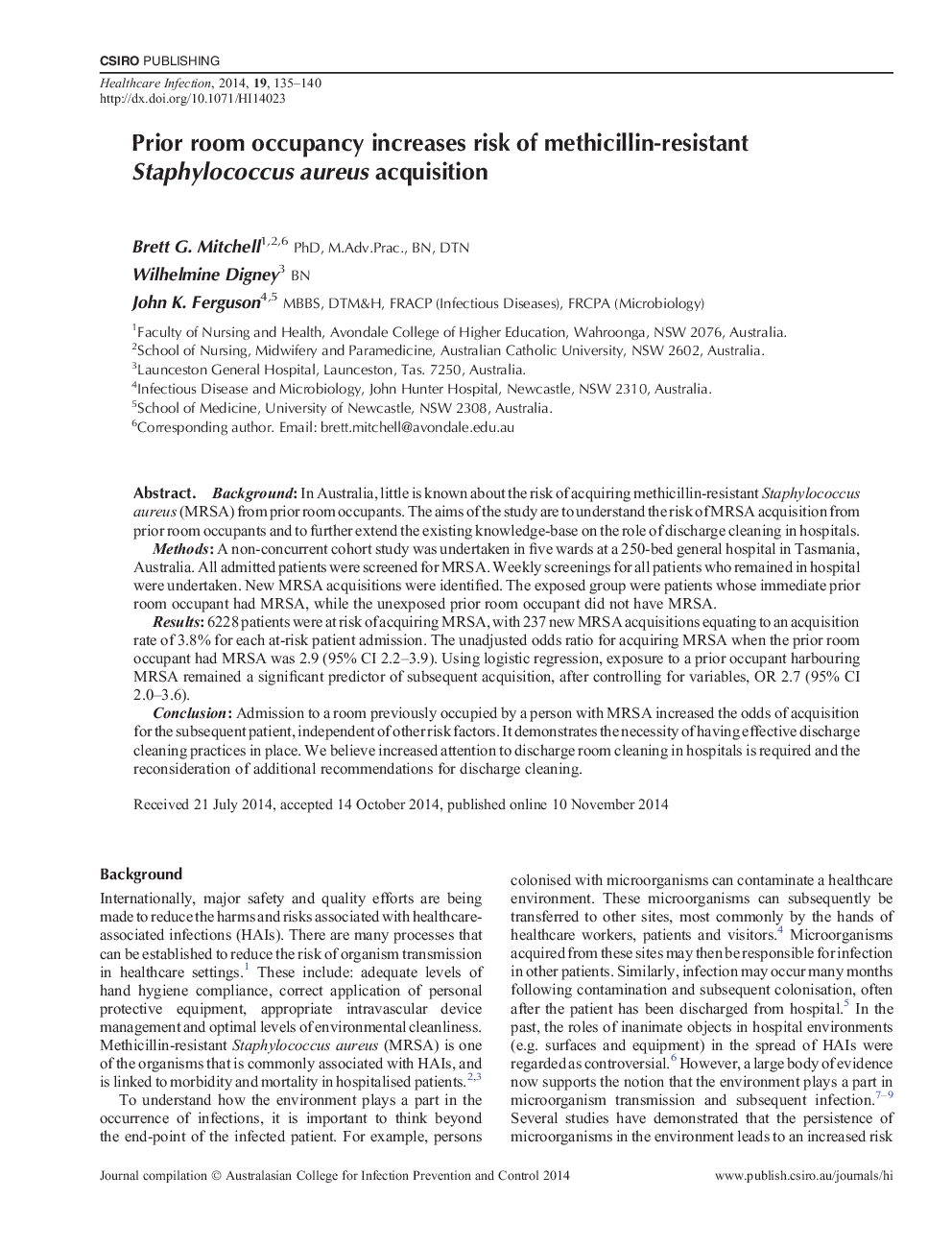| Article ID | Journal | Published Year | Pages | File Type |
|---|---|---|---|---|
| 2680204 | Healthcare infection | 2014 | 6 Pages |
BackgroundIn Australia, little is known about the risk of acquiring methicillin-resistant Staphylococcus aureus (MRSA) from prior room occupants. The aims of the study are to understand the risk of MRSA acquisition from prior room occupants and to further extend the existing knowledge-base on the role of discharge cleaning in hospitals.MethodsA non-concurrent cohort study was undertaken in five wards at a 250-bed general hospital in Tasmania, Australia. All admitted patients were screened for MRSA. Weekly screenings for all patients who remained in hospital were undertaken. New MRSA acquisitions were identified. The exposed group were patients whose immediate prior room occupant had MRSA, while the unexposed prior room occupant did not have MRSA.Results6228 patients were at risk of acquiring MRSA, with 237 new MRSA acquisitions equating to an acquisition rate of 3.8% for each at-risk patient admission. The unadjusted odds ratio for acquiring MRSA when the prior room occupant had MRSA was 2.9 (95% CI 2.2–3.9). Using logistic regression, exposure to a prior occupant harbouring MRSA remained a significant predictor of subsequent acquisition, after controlling for variables, OR 2.7 (95% CI 2.0–3.6).ConclusionAdmission to a room previously occupied by a person with MRSA increased the odds of acquisition forthe subsequentpatient, independent of other risk factors. It demonstrates the necessity of having effective discharge cleaning practices in place. We believe increased attention to discharge room cleaning in hospitals is required and the reconsideration of additional recommendations for discharge cleaning.
